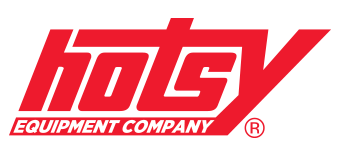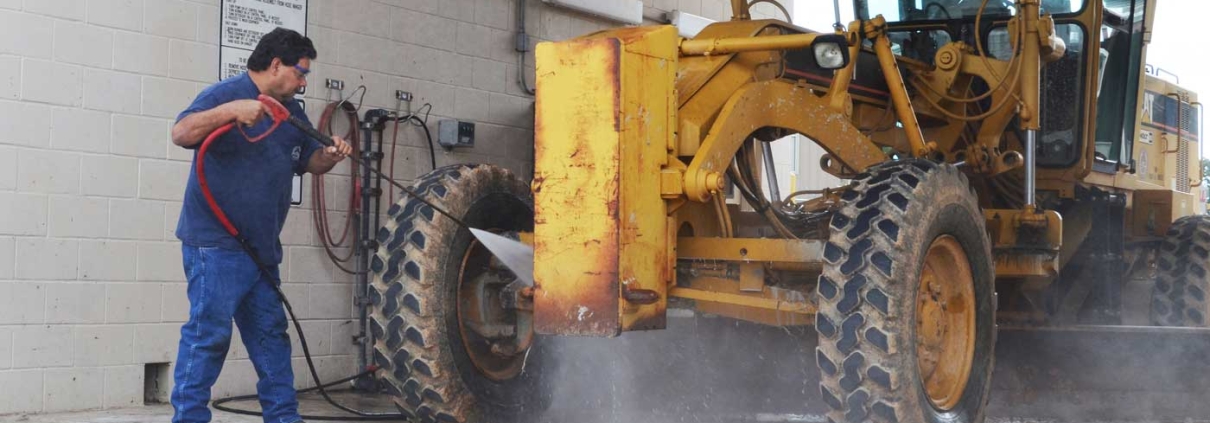What Is GPM On A Pressure Washer?
If you’re in the market for a pressure washer, either as a renter or a buyer, gallons per minute (GPM) is necessary to understand. In this article, we’ll explain more about what is GPM on a pressure washer and why it’s so important when it comes to a pressure washer.
We’ll also talk about what does GPM mean on a pressure washer, what GPM you might need and any other factors to consider when choosing a pressure washer that’s best for you.
What Does GPM Mean on a Pressure Washer?
What is GPM on a pressure washer? GPM, or gallons per minute, is the standard by which pressure washers are judged. What does GPM mean on a pressure washer? So it’s the water flow rate that the pressure washer produces.
This number can vary depending on the pressure washer you are using – so it’s important to know what kind you have. Most residential pressure washers have a GPM rating of one to two, while the best commercial pressure washers can range from three to six GPM.
When pressure washing, you use a lot of water – so it’s vital to understand how much water your pressure washer is using.
The pressure, or PSI (pounds per square inch), is relatively constant across pressure washers. The big difference the pressure washers have is the GPM output.
Why Is It Important to Know How Many Gallons Per Minute a Pressure Washer Can Produce?
It’s important to know how good your pressure washer is at its job. A higher GPM on a washer means it’ll clean faster than a lower GPM washer.
When you’re looking at pressure washers, the GPM will be one of the main specs that differentiate the machines.
GPM is important because it dictates the amount of pressure put on the surface you are pressure washing. The pressure washer’s pump creates water pressure by squeezing the water through a small opening.
This high-pressure stream of water can reach up to 60 times the pressure of a garden hose, which is why pressure washers are so effective at cleaning tough stains.
However, if not handled appropriately, the pressure from the stream of water might cause surface damage. It’s why it’s essential to understand the concept of GPM – so you can pressure wash without causing any damage.
What GPM on a Pressure Washer Do I Need?
Now that you know what GPM is and why it’s essential, you need to determine what pressure washer GPM is suitable for you.
If you’re not sure how much pressure washing you’ll be doing or what kind of pressure washing you’ll be doing, an excellent middle-of-the-road pressure washer will have a GPM of around four.
But if you know that you’re going to be pressure washing a lot or something big, like the side of a large building, you’ll want a pressure washer with a higher GPM.
Pressure washers with a GPM of five or six will be more expensive, but they’ll also get the job done much faster.
Consider Your Cleaning Requirements
When you’re looking for a pressure washer, you first need to consider your cleaning requirements. These are some questions you’ll want to ask yourself:
- How often are you going to be using the pressure washer?
- What are you going to be cleaning?
Once you understand your needs well, you can start looking at pressure washers with the right GPM for you.
A lower GPM model will suffice if you rarely intend to use your pressure washer for small projects. However, if you’re going to be doing a lot of pressure washing, or pressure washing large areas, you’ll need a pressure washer with a higher GPM.
Other Factors To Consider
Now that you know more about GPM, you need to consider a few other factors when choosing a pressure washer.
You must also pick whether you want a gas or electric pressure washer. Although gas pressure washers are more powerful, they are also noisier and require more maintenance. On the other hand, electric pressure washers are quieter and easier to maintain than gas pressure washers, but they are not as powerful.
Now we come to the features of your pressure washer.
Do you want a pressure washer with a soap dispenser built-in? Do you need a pressure washer that’s easy to move around?
Although a hot water pressure washer is more expensive, it can remove even some of the most stubborn stains. In addition, it has a greater GPM than cold water pressure washers. Therefore, if you pressure wash frequently, a hot water pressure washer might be worth the investment.
When it comes to pressure washers, cold water models are less expensive and entirely appropriate for most operations that need to be done. If you only pressure wash occasionally or pressure wash something that’s not very dirty, a cold water pressure washer is a good choice.
Above all else, when it comes to choosing a pressure washer, make sure it has the appropriate GPM for your needs.
With so many different pressure washers on the market, think about what features are important to you and look for pressure washers that have those features.
It is pretty straightforward to find one that is appropriate for you when you’ve conducted the appropriate research to select the pressure washer that best suits your needs.
What about PSI?
When looking for a pressure washer, the GPM is the most important thing to consider. This is because the GPM (gallons per minute) output dictates the amount of pressure put on the surface you are pressure washing.
Another aspect of pressure washers is the PSI. PSI (pounds per square inch) is how we measure pressure. In short, if the PSI is high, so is the pressure.
You might be asking whether PSI or GPM is more important.
It all depends on your intended application for the pressure washer. For example, PSI is more crucial than GPM if you only intend to use your pressure washer for minor matters like cleaning a wooden deck or washing a car.
But if you’re going to be doing heavier-duty jobs, like pressure washing concrete or trucking fleets, GPM is more important than PSI.
So, bear in mind what you’ll be using a pressure washer for when making your selection.
Any Drawbacks to Consider With Excess GPM?
The price is the biggest drawback to consider when looking at pressure washers with high GPM ratings. Pressure washers with higher GPM ratings will be more expensive than pressure washers with lower GPM ratings. However, you get what you pay for in the form of more effective, efficient cleaning.
Another thing to consider is that higher GPM pressure washers can be more challenging to control. You might accidentally damage surfaces if you’re not used to pressure washing with a high GPM pressure washer.
Finally, higher GPM pressure washers require more maintenance than lower GPM pressure washers. You’ll have to clean the filter more frequently and ensure the pump is adequately greased.
If you’re willing to pay more for a pressure washer and are comfortable with increased maintenance, a high GPM pressure washer is good. But if you’re not sure you’re ready for a high GPM pressure washer, it’s better to start with a lower GPM pressure washer. Of course, you can always upgrade later.
Need Help Choosing A Pressure Washer GPM? Reach Out!
Still not sure what pressure washer GPM is suitable for you?
We’re the #1 pressure washer store in San Antonio – and have helped businesses around the country get the cleaning power they need for the past four decades and counting.
If you’re not sure what type of commercial pressure washer you need, let us help you make the right choice. We’ll make sure you have everything you need for any cleaning job. You’ll find hot water pressure washers for sale in our stores, pressure washer soaps, and even pressure washer rentals.
What Is GPM On A Pressure Washer? Wrapping Things Up
With all the knowledge you’ve now gained about GPM, PSI, gas, and electric pressure washers, as well as pressure washer features, you’re ready to go out and buy the perfect pressure washer for your needs.
Remember to keep GPM in mind – it’s an essential factor in choosing a pressure washer.Now you should know what is GPM on a pressure washer.
If you’re still not sure which pressure washer is suitable for you, reach out to our team of experts. Our team at Hotsy will help you choose the perfect pressure washer for your business. Visit us online for details of our products and contact us to help you decide. We’re here to help!



